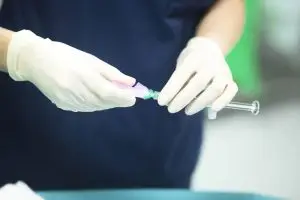Stress over dental work or routine cleanings can keep you from getting them done, which impacts your dental health. When you need a dental procedure done, like a tooth extraction or a root canal, it’s understandable to feel nervous. However, finding ways to feel calmer can help ensure that your procedure goes smoothly and reduces your stress. Sedation can go a long way toward helping you feel relaxed when you go to the dentist. Learn dental sedation in Phoenix can help ease your stress and anxiety during a dental visit.
Effects of Dental Sedation
 Dental sedation involves the use of a medication, like gas or sedatives, to help ease your anxiety before a procedure done. While there are different types of sedation, none of them make you fully unconscious. You may go into a somewhat sleepy state or a more relaxed state, but you’ll still maintain consciousness during your procedure. Two common types of sedation that dentists use include nitrous oxide and intravenous (IV) sedation.
Dental sedation involves the use of a medication, like gas or sedatives, to help ease your anxiety before a procedure done. While there are different types of sedation, none of them make you fully unconscious. You may go into a somewhat sleepy state or a more relaxed state, but you’ll still maintain consciousness during your procedure. Two common types of sedation that dentists use include nitrous oxide and intravenous (IV) sedation.
Nitrous Oxide
A common form of dental sedation, nitrous oxide is a type of gas that is used to help relax patients. With this type of sedation, you’ll wear a mask over your nose that keeps this gas flowing during your procedure. Nitrous oxide, also known as laughing gas, promotes relaxation without putting you to sleep. You might experience a tingling sensation or heaviness in your legs and arms at first, as well as lightheadedness. After a short time, you can expect to feel relaxed and calm. Being in this state helps take your mind off of the dental procedure while also reducing any nervousness you might feel. Keep in mind that nitrous oxide works gently but quickly. Once you remove your mask, the effects wear off quickly, as well.
IV Sedation
IV sedation involves receiving an anti-anxiety medication through a thin needle, placed in a vein in your arm or hand. The medication moves through the IV tube and reaches your bloodstream, resulting in reduced stress and anxiety. The effects of this type of sedative help you feel relaxed and a bit sleepy, but you won’t completely lose consciousness or fall asleep during your procedure. IV sedation also prevents the feeling of pain while having dental work done, which helps reduce stress significantly. You’ll be able to answer questions your dentist might ask and respond to requests. But you likely won’t remember details about your procedure afterwards. The effects of IV sedation take awhile to wear off, so someone will need to drive you home afterwards.
Benefits of Dental Sedation for Patients
 Dental sedation during a dental procedure done offers important benefits. Creating a sense of calm is one of the most common. This allows many patient to get dental work done when needed with less anxiety and fear. Putting off a procedure due to anxiety often makes dental problems worse, resulting in an even more complex procedure at a later point. Neglecting dental health out of fear and stress puts you at risk of developing serious health issues, such as a tooth or gum infection.
Dental sedation during a dental procedure done offers important benefits. Creating a sense of calm is one of the most common. This allows many patient to get dental work done when needed with less anxiety and fear. Putting off a procedure due to anxiety often makes dental problems worse, resulting in an even more complex procedure at a later point. Neglecting dental health out of fear and stress puts you at risk of developing serious health issues, such as a tooth or gum infection.
Dental sedation helps keep your dental visits stress-free for everyone. This, in turn, can help ease dental anxiety overall. When you have pleasant dental visits, even when for a long or complex procedure, nervousness for your next visit falls. Keeping stress levels low with the help of dental sedation helps you build up a positive association with going to the dentist instead of feeling anxious about it.
Getting IV sedation or nitrous oxide while having a long, invasive procedure done also helps these visits go more smoothly. When you relax rather than tense up, your dental team performs procedures with a lower risk of errors or complications. Since you’ll can have more work done in a single visit while you’re at ease and comfortable, you might not need to come back in for multiple visits to have work completed.
Conclusion
If dental anxiety keeps you from getting cleanings or other dental work done, please contact us at Dental Brothers. Our dentists in Mesa and Phoenix offer dental sedation to help relieve anxiety about these visits, so you can keep your teeth healthy.
